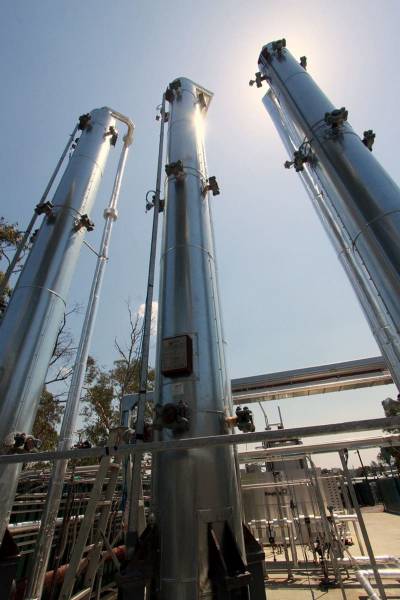World Intellectual Property Day is held annually on the 26th April to celebrate and remind us how IP encourages innovation and creativity. This year the theme for World IP Day is: "Innovate for a Green Future".
IP Assists in Driving Green Technology
Unsurprisingly, there has been increased focus on green technology in the face of global warming and its environmental impacts.
Recycling can be broadly understood as any process for converting waste materials into useful products (e.g. fuels and chemicals). These processes not only benefit the environment by reducing the carbon footprint from waste and providing alternatives to fossil fuels, but also generate economic value in society by providing employment and income. In recent years, existing and newly-emerging companies have developed advanced technologies capable of exploiting waste materials to provide energy rich fuels, chemicals, and other valuable products.
Intellectual property (IP) rights are key to incentivising innovation in this space in that they provide companies and investors with security when allocating significant resources to R&D initiatives. IP rights such as patents, designs and trade marks have thus assisted to drive innovation in their own right, and are a key asset to many companies operating in the green tech space. Many patent offices around the world offer expedited examination status to green technology patents reflecting the global social and economic importance of advances in this field.
Case Study - LicellaT Holdings
LicellaT is a leading Australian company in the green and chemicals energy space, having developed a proprietary hydrothermal upgrading platform (Cat-HTRT) capable of converting a wide range of low-cost feedstocks, wastes and residues into high-value products.
After 13 years of extensive testing and plant scaling the platform is commercial-ready and the company is working with strategic partners to build the world's first commercial-scale hydrothermal upgrading plants. Additional commercial partnerships have been struck to integrate the platform with existing infrastructure (e.g. Kraft pulp mills) to provide new revenue streams and resource recovery.
Spruson and Ferguson has assisted LicellaT in developing and strategising its IP portfolio since the company's inception in 2007, having drafted, filed and prosecuted 13 worldwide patent families involving approximately 200 individual filings. The company has licensed and assigned its patents to a number of third parties, generating revenue and facilitating various commercial collaborations.
In recent years LicellaT has focused its efforts on the chemical recycling of End-of-Life Plastic. According to National Geographic, single-use plastics account for about 40 percent of the plastic produced every year. Many of these products, including plastic bags and food wrappers, have a lifespan of only minutes to hours, but can persist in the environment for hundreds of years. Most ends up in landfill, incineration, or the ocean at great environmental cost. Fossil oil then needs to be extracted to make new plastics at considerable expense.
LicellaT has demonstrated that it can use its Cat-HTRT platform to chemically recycle virtually all End-of-Life Plastic back into the oil from which it was made. Any product which can be made from fossil oil can thus also be made from End-of-Life Plastic recycled (into synthetic oil) via the Cat-HTRT process.
LicellaT CEO, Dr Len Humphreys recently commented "By pioneering a circular solution for all plastics, we can utilise the massive amount of plastic already in circulation as a resource, preventing plastic from leaking into the natural environment, reducing our need for fossil oil and significantly reducing carbon emissions."
IP has played a prominent role in facilitating Licella's ongoing commercial successes, providing leverage in negotiations with third parties, and revenue streams.
In Australia, Licella is applying its Cat-HTR technology to the recycling of End-of-Life Plastic and biomass waste into oil (biocrude in the case of biomass) via its Australian commercial partner iQ Renew Pty Ltd. In Australia alone, there is the potential for 20 to 30 commercial-scale Cat-HTRT plants capable of recovering and recycling almost all plastic used in Australia today.
Internationally, its global joint venture with Armstrong Capital (UK), Mura Technology, is facilitating the construction of a world first commercial-scale hydrothermal upgrading plant in the UK to treat End-of-Life Plastics (20,000 tonnes annually). LicellaT has also entered into a joint commercial venture with global pulp and paper producer Canfor Pulp, to integrate its Cat-HTR platform with one of Canfor's commercial pulp mills and produce 500,000 bbl/annum of biocrude, making it one of the largest 2nd generation bio-refineries in the world.
 |
 |
The future certainly seems a bright (and green) one for innovative companies in this space, and securing robust IP rights will remain a key element in achieving their environmental and commercial goals.
The content of this article is intended to provide a general guide to the subject matter. Specialist advice should be sought about your specific circumstances.




